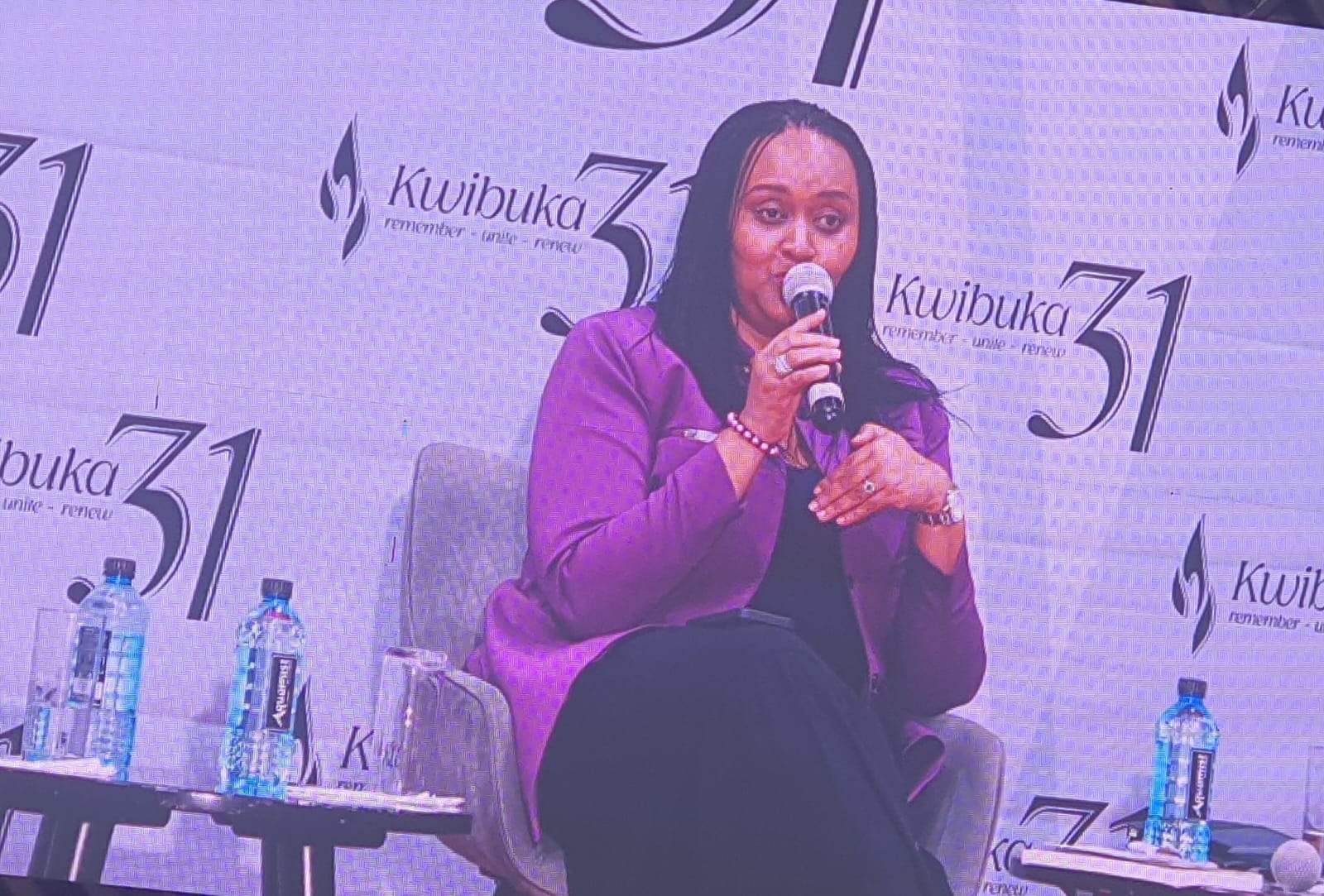
When the Rwandan genocide that led to the killing of over one million people took place in 1994, Dimitrie Sissi saw it all.
“I was 22 years old then when the genocide occurred. I saw it during preparation and when it happened,” Sissi, who has since documented the darkest event told a fully parked room at Kenyatta International Convention Centre (KICC) during a symposium on Tuesday.
Panelist during the symposium on the genocide included Professor of Public Law, PLO Lumumba, and Pan African Review Managing Editor Dr Lonzen Rugira.
Sissi said her parents were silenced and they did not have an opportunity to share their woes.
“They had been discriminated and never had space and opportunity to share with us. Our children need to know how it was planned and executed.""
Sissi said their children should stand up for their rights.
She said April 11, 1994, was her day to die due to the genocide but as fate would have it, her resurrection day was June 15.
Sissi said she survived the genocide in the church before she was ushered into a hospital as safe haven.
“I saw people being killed. Death was certain, it was visible; we saw it and smelt it.”
Sissi said at one point, she was ushered into the mortuary where she spent some time with corpses and she knew that this was her last time to be alive.
A cleaner would, however, come to her rescue at around 3am.
She successfully made her way out.
Sissi said 10,000 people were killed each day during the 100 days the genocide lasted.
She said 300,000 children were killed, 95,000 children orphaned, between 250,000 and 500,000 women and girls were raped, 70 per cent of whom were infected with HIV and Aids.
Sissi said 20,000 children were born out of rape.
The mother of five said the thought of forgiving her tormentors has not crossed her mind yet, adding that it requires a lot of courage.
Sissi said her book titled ‘Do Not Accept To Die’ is a motivation, detailing Rwanda's tragedy - the 1994 Genocide in which nearly one million ethnic Tutsi and moderate Hutu were killed as the international community and UN peacekeepers stood by.
Lumumba reiterated the need for African countries to have working institutions.
He said apparent weaknesses in institutions, manipulation and false idea of sovereignty continue to mess the continent.
Rugira echoed Lumumba’s sentiments saying the UN Security Council failed to prevent genocide despite prior warnings.
High Commissioner of Rwanda to Kenya Martin Ngoga said the genocide stands as one of the darkest chapters in human history.
“The genocide against the Tutsi was one of the darkest moments in human history. In just 100 days, over a million lives were brutally taken. Families were torn apart, communities shattered, and a nation left in ruins. Today, thirty-one years later, Rwanda has risen, but the scars remain," Ngoga said.
"It is our duty to ensure that these wounds are not deepened by silence or indifference."
Ngonga said the symposium endeavours to preserve historical memory, ensuring that the truth is documented and passed on to future generations.
“By gathering testimonies, analysing evidence, and sharing research, the symposium helps in preventing historical distortion and keeping the truth alive for future generations.”
Ngoga said Rwanda 31 years ago bore witness to a tragedy fuelled by hatred, dehumanisation and divisive ideologies.
“The world stood by as over a million innocent men, women and children were brutally murdered simply because of their identity. The United Nations, despite having peacekeepers on the ground, failed to act decisively,” Ngoga said.
He said some of the world’s most powerful nations actively obstructed intervention.
“International media misrepresented the slaughter as tribal conflict, and when the scale of the genocide became undeniable, world leaders responded with excuses rather than action, reflecting the highest level of irresponsibility.”
Ngoga warned that genocide denial, hate speech and the glorification of genocide perpetrators have been weaponised by those who seek to distort history.
“Disturbingly, these narratives are met with global indifference. Social media platforms, despite their immense power, continue to provide space for genocide ideology to spread unchecked. Political leaders in various parts of the world have been manipulating ethnic and racial tensions to consolidate power, ignoring the dangerous path they tread.”










